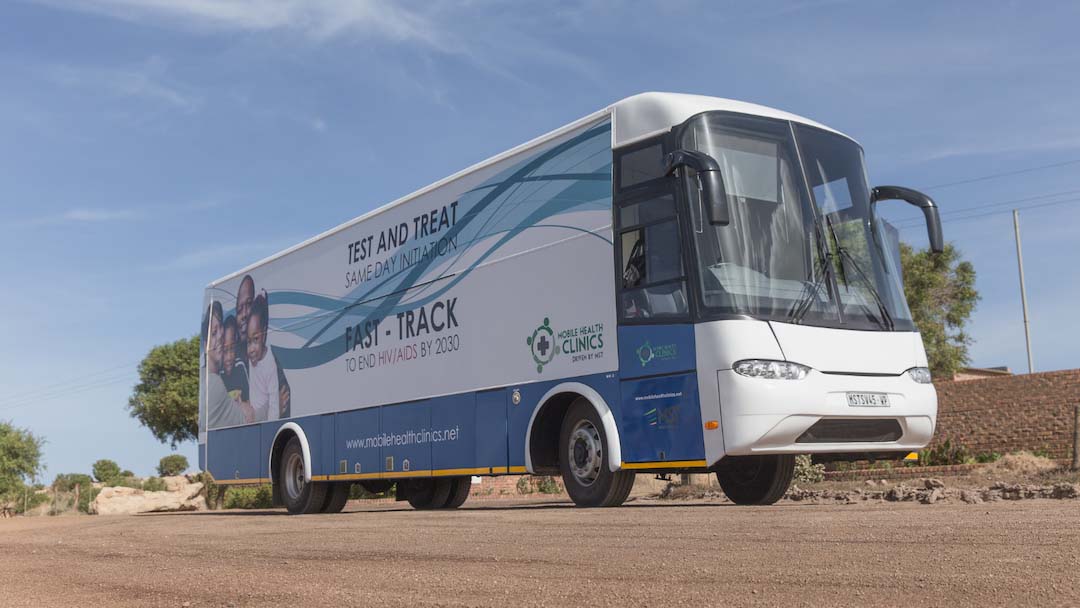Health On Wheels

Mobility has had an enormous impact on the healthcare sector locally and internationally and continues to grow.
Basic health care is a fundamental human need, and we know that high-quality health care helps to prevent diseases and improve quality of life. In disadvantaged places such as rural areas and townships, access to quality healthcare is scarce and inaccessible. There is a saying by Kaiser Permanente (one of America’s leading health care providers and non-profit health plans) if you cannot get the patients to the clinic, take the clinic to the patients! The early innovations of mobile healthcare date back to the early 1970s, undertaken by Kaiser Permanente to test the feasibility of mobile healthcare clinics to serve disadvantaged communities. Kaiser Permanente used mobile vans for immunization, the vans rotated among several medical centres, spending 1 to 3 weeks at each facility before moving on. Their programme was so successful that even 40 years, later they are still operational in many parts of the United States in various capacities.
Mobility has made a significant impact within the healthcare sector by making healthcare more accessible and available, increasing the quality of healthcare services while ensuring that costs of delivering this care are kept to a minimum. It has proved to be a great tool in dealing with the HIV pandemic that South Africa is currently facing, with over 7.7 million people living with HIV, placing our health system under severe pressure. An example would be the BroadReach project which operated for seven months between 2016 and 2017, with the aim of fast-tracking the testing and treatment of HIV using mobile health clinics. These mobile health clinics were fully equipped to do the testing and treatment cycle in under 60 mins. Broadreach launched three mobiles and managed to test 24,585 people in seven months, 50% of which were male, this being the highest male testing rate reported by an HIV project. These numbers show that a larger investment in mobile health clinics promises significant improvements and greater impact for South Africa’s HIV test and treat solutions.
In addition to the HIV pandemic in South Africa, TB is a disease that has a devastating impact with over 60,000 South Africans dying every year. During the Covid-19 pandemic, South Africa saw a 48% plunge in diagnostic testing volumes due to restriction of movement during the pandemic. To remedy this, the Lung Institute deployed 10 TB mobile clinics in early 2021 with the aim of providing rapid testing in poor communities to be able to diagnose TB quicker and start treatment. The mobile clinics also offered Covid-19 screening. The project helped bridge the gap that was created by the pandemic, ultimately fast-tracking the diagnosis and offering treatment for TB. Here we see how mobility can serve to bridge the gaps that exist in our healthcare system and offer an invaluable solution.
Mobile healthcare has been making progress internationally too. An interesting example is the Mobile 1000 project that was launched in India, with the aim of providing 1000 Mobile Healthcare vans that give free primary healthcare to 25 million people in the rural areas of India. To date the project has reached about 13.67 million people from 1560 villages across 15 states of India with just 205 mobiles.
The impact of mobile healthcare is clear from the findings of the Mobile Health Map, which is a collaborative research community that evaluates the impact of mobile clinics. The United States has about 2000 operational mobile clinics, which have improved annual visits to 6.5 million people per year. The Mobile Health Map has found that providing health care via mobiles is cost-effective, does not jeopardise the quality of the care provided and helps to alleviate the stresses on the health care system. On average the ROI for a mobile health clinic is 12:1, meaning that for every one dollar spent, twelve dollars are saved. Another finding was the significant reduction in emergency room visits – there were 600 fewer emergency visits per year reported in areas where mobile clinics operated. This is due to mobile clinics providing early screening and detection of potential high-risk health issues.
Mobile health clinics provide great benefits to our society and with the advances in technology (e.g. telehealth) we foresee that these benefits will only continue to expand throughout South Africa. Guud is an advocate for mobility in the healthcare sector as we have seen first-hand the impact it has on people’s lives through the projects we collaborate on and look forward to supporting many more life-changing, community-enhancing mobile healthcare projects.
